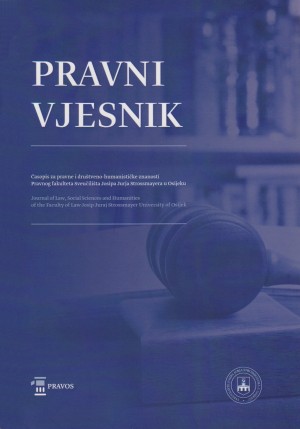TROUBLED WATERS: CROATIAN SEASHORE AS RES EXTRA COMMERCIUM IN COMMERCIO
TROUBLED WATERS: CROATIAN SEASHORE AS RES EXTRA COMMERCIUM IN COMMERCIO
Author(s): Nikol Žiha, Marko SukačićSubject(s): National Economy, Regional Geography, Socio-Economic Research, Geopolitics
Published by: Pravni fakultet Sveučilišta Josipa Jurja Strossmayera u Osijeku
Keywords: common good; concession; maritime domain; res extra commercium; seashore;
Summary/Abstract: This paper seeks to examine the special legal nature of the Croatian seashore as a common good and the challenges of its commercial use. It was Roman law that first recognized the seashore as a thing that was res communes omnium – common property of all men under natural law. Roman jurist Marcian defined it as all air, running water, sea, and the seashore as far as the high-water mark. In Croatia, based on this Roman doctrine, the seashore is considered a maritime domain, the welfare of which is of interest to and under special protection of the state. Although maritime domain should not be presumed as a subject of ownership or commerce (extra commercium), due to numerous legal exemptions, its common good-character has become a point of contention. Contemporary legal solutions in Croatia (especially the Act on Ownership and Other Real Rights (Zakon o vlasništvu i drugim stvarnim pravima), the Maritime Domain and Seaports Act (Zakon o pomorskom dobru i morskim lukama), and the Concessions Act (Zakon o koncesijama)) grant exclusive rights to commercial exploitation of the maritime domain for up to 99 years, as well as provide for pledging or transferring of concession. In doing so, this paper reasons, the Croatian legal system has to a certain extent alienated the legal nature of the maritime domain and de facto created a new ‘quasi-real right’ on the common good.
- Issue Year: 39/2023
- Issue No: 2
- Page Range: 7-28
- Page Count: 21
- Language: English

